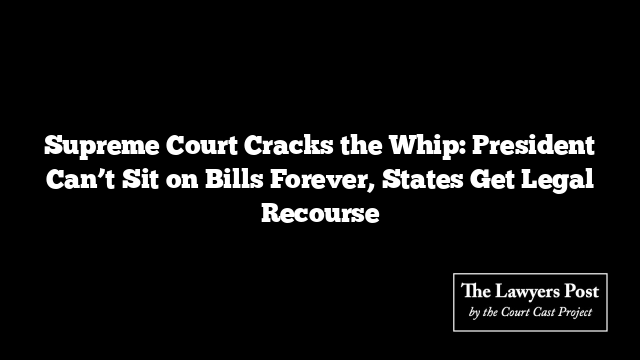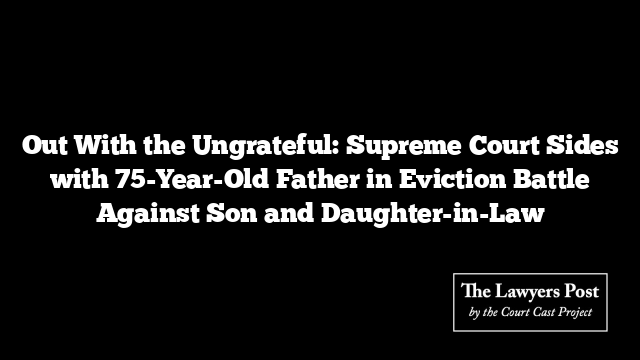In a powerful pushback against executive silence, the Supreme Court has declared that the President of India cannot park state bills in a bureaucratic limbo. If a Governor forwards a bill to the President, there’s now a ticking clock: the President must make a decision within three months. No more ghosting.
This directive came down in the State of Tamil Nadu vs Governor of Tamil Nadu case, where the highest court laid down crisp timelines under Article 201 of the Constitution. The message: Constitutional offices aren’t waiting rooms for democratic will.
The bench, led by Justices JB Pardiwala and Justice Mahadevan, didn’t mince words. They warned that if the President exceeds the three-month limit, reasons must be recorded and disclosed to the concerned State. The ball doesn’t just stop there—if inaction persists, State governments have been handed a constitutional tool: they can approach the courts and seek a writ of mandamus, compelling the President to act.
“Inaction isn’t an option,” the judgment made clear. “If the Governor can’t play dead with bills, neither can the President.”
The Court also dismantled the idea that the President wields an “absolute veto”—a silent denial by simply doing nothing. Constitutional morality, it held, doesn’t allow either the Governor or the President to quietly bury a bill.
And if the President chooses to withhold assent? That decision must come with a reason—and that reason must be communicated to the State. Not just out of courtesy, but as a democratic necessity. Without this, States are left in the dark, unable to amend, explain, or respond to the concerns raised at the Centre.
The Court went even further. No explanation from the President? Courts can presume something fishy—potential bad faith. The cloak of constitutional silence, the judges made clear, won’t protect executive inaction.
The ruling also nudged both ends of the federal spectrum to talk more. The Court urged States to consult the Centre before rolling out bills that might need presidential assent. In turn, the Centre was told to treat State legislative proposals with respect and urgency.
Perhaps most striking was the Court’s advice on what to do when a bill is flagged for being unconstitutional. In such cases, the President should use Article 143 to seek an advisory opinion from the Supreme Court—because questions of constitutionality belong in a courtroom, not behind closed doors in Delhi.
What emerged from the judgment is a renewed vision of federal cooperation—backed by enforceable timelines, accountability, and transparency. A quiet revolution in the way legislative deadlocks between States and the Centre will now be resolved.





